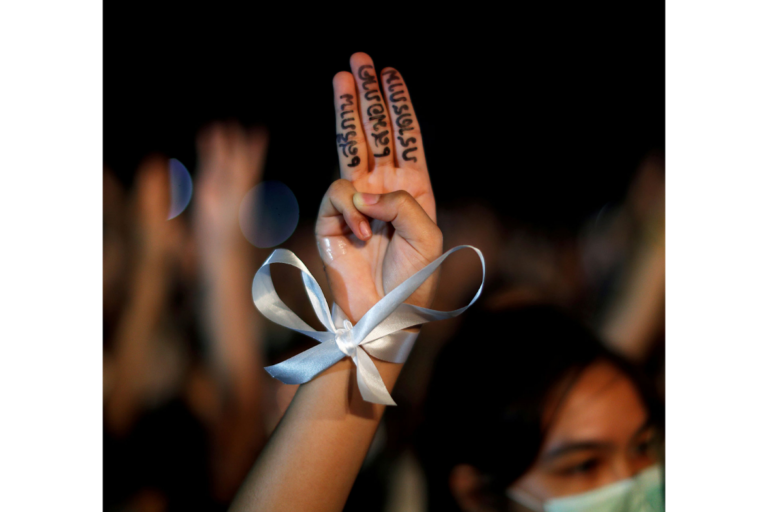As protests against the government of Prime Minister Prayut Chan-ocha erupted across the country in early 2020, a peculiar and once thought unimaginable phenomenon grew out of that movement. For the first time in Thailand’s history, young protesters demanded reform to the monarchy. The youth protest movement called for reductions to the power of King Maha Vajiralongkorn as he and his family had previously been immune to any direct public criticism. The crown has recently been criticized for its tremendous wealth, an enormous budget for living expenses that is fully-funded by taxpayers’ funds, being only a part-time resident of the country as he lives most of the year in Germany, and for its strict lèse majesté law that punishes any Thai with a prison sentence of up to 15 years for criticizing the royal family.
In September of last year, thousands of student protesters even marched to the official residence of the king to deliver a letter demanding curbs to the king’s power. The protesters wore white ribbons as a symbol of their democracy movement and displayed a three-finger salute, which is an act of defiance from the novel Hunger Games. To increase pressure on the government, the protest movement has called for general strikes and encouraged people to withdraw their savings from a bank controlled by the king. Even though the government has denied this, delayed welfare payments to senior citizens were blamed on the king by protestors as the royal family continues to receive large payments from the government.
Experts point out that one differing factor for these protests is that older demonstrators have started to join students in their demand for reform to the monarchy. A special advisor on international affairs at Naresuan University, Dr. Paul Chambers, said that these protests were unrivaled in Thailand as the demonstrations were “shifting the rules regarding what can be discussed in public.” This is in reference to the long-standing law that prohibits criticism against the royal family. Though many protest leaders have been arrested by the government and charged with insulting the king, the Prime Minister has said that the king has requested that no protesters be prosecuted under that law. While the protests have slowed down for the last few months as an increase in coronavirus infections has prompted more restrictions on public gatherings, protest leaders are waiting for ease in restrictions to continue their pro-democracy movement. Along with calling for reforms to the monarchy and the resignation of the Prime Minister Prayut, the movement also plans to challenge the government for its slow vaccine rollout. Until now, the Royal Palace and the king have not made any public statements in regards to the protests and demand for reforms.
By: Yoong Kim


